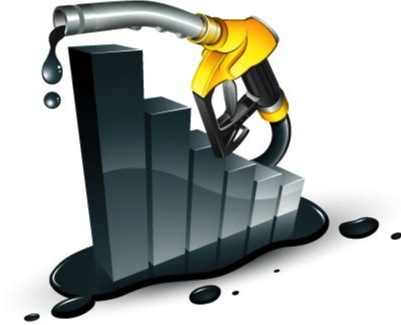Assessing the Impact of a Possible Diesel Shortage on Global Supply Chains
This is a guest post by Ellie Gabel.
Supply chains have not had it easy for the past few years. Disruptions have grown in frequency and severity, and while issues may have come down from their pandemic-era highs, there are still challenges ahead. Current signs are pointing toward an oncoming diesel shortage.

Surviving disruption means adapting to whatever changes come. To do that, however, businesses must understand future possibilities and how these challenges could affect their broader supply chains. It’s not enough to know that diesel supplies may not match future demand. Organizations must determine what that would look like in their specific companies.
A Potential Diesel Shortage on the Horizon
The incoming diesel shortage is an issue of both supply and demand. On the supply side, diesel, heating oil, and gas inventories are below the 10-year seasonal average in North America, Europe, and Singapore. In the U.S. specifically, diesel stocks are at their lowest point for this time of year since the early 1950s.
This supply shortage stems from several factors. Most notably, Russia’s ongoing war against Ukraine has disrupted many significant diesel refineries in Europe. [Editor’s Note: Just as notable are the restrictive policies and executive orders of the Biden Administration on American oil drilling and gas production.] Recent attacks on shipping vessels in the Red Sea have had a similar effect, restricting the global oil trade.
Growing trends on the demand side will likely worsen the issue. Manufacturing activity is starting to ramp up after a period of less activity. Improving economic conditions, including declining interest rates, are fueling manufacturing growth. As a result, the Energy Information Administration expects diesel consumption to grow by 1.3% in 2024.
While that’s not a huge increase, it doesn’t reflect the whole picture, either. Manufacturing sectors in other nations are growing as well, leading to higher global demand. Even a modest consumption increase could have a significant impact on availability in light of the declining supply.
What It Means for Supply Chains
The most obvious effect of the diesel shortage on supply chains is higher operating costs. As demand grows and supplies shrink, fuel prices will rise. These higher expenses impact more than just refueling trucks, too.
Diesel powers the majority of commercial energy operations, so higher diesel prices will mean rising expenses across the board. Manufacturing costs will increase as production facilities need diesel to generate the large amounts of energy they use. These expenses, combined with higher transportation costs, could add up to significant economic strain.
Depending on the extent of this shortage, it could have even more disruptive consequences. As demand rises and supplies continue to shrink, some organizations may be unable to get the diesel they need, even if they can afford it. Consequently, they may have to pause operations in some areas.
These cutbacks could mean transportation companies run fewer routes, leading to extensive shipping delays. Alternatively, some manufacturers may reduce their output to lower their energy consumption, leading to potential shortages. In less dramatic scenarios, organizations may have to pause or delay expansion initiatives needed to keep up with rising customer demand, creating lost business opportunities.
What Can Businesses Do About It?
After the disruptions of the COVID-19 pandemic, organizations should have learned that they must anticipate and prepare to withstand supply chain challenges before they arise. Given the growing likelihood of a diesel shortage in the coming years, businesses should take several steps.
Organizations should plan to reduce their diesel consumption where possible. Using Internet of Things (IoT) sensors to monitor and minimize energy expenditures in manufacturing is a good start.
Fleets can use AI route planning software to improve travel efficiency while completing the same amount of work. For example, a case study showed AI technology saves UPS 10 million gallons of fuel annually.
Reducing reliance on fossil fuels in the long term could be an important strategy, too. Fleet electrification could help offset diesel shortages and price spikes. Using biodiesel is another promising alternative — one that may not require new vehicles. While this shift may not yield immediate results, it’s a long-term goal that could mitigate similar situations in the future.
Supply Chains Must Prepare for Disruption
Businesses should keep a close eye on diesel supply and demand shifts to respond to potential shortages accordingly. Even if no widespread price hikes or shortages occur, adjusting operations to make supply chains more resilient is still the best way forward.
Supply chain disruptions are inevitable to some extent. However, staying on top of these trends and embracing more resilient business practices will mitigate their impact, now and in the future.
This was a guest post by Ellie Gabel.
Author Bio
Ellie is a freelance writer who loves exploring the latest advancements in tech and science and how they’re impacting the world we live and work in. She’s also the associate editor of Revolutionized.com.





